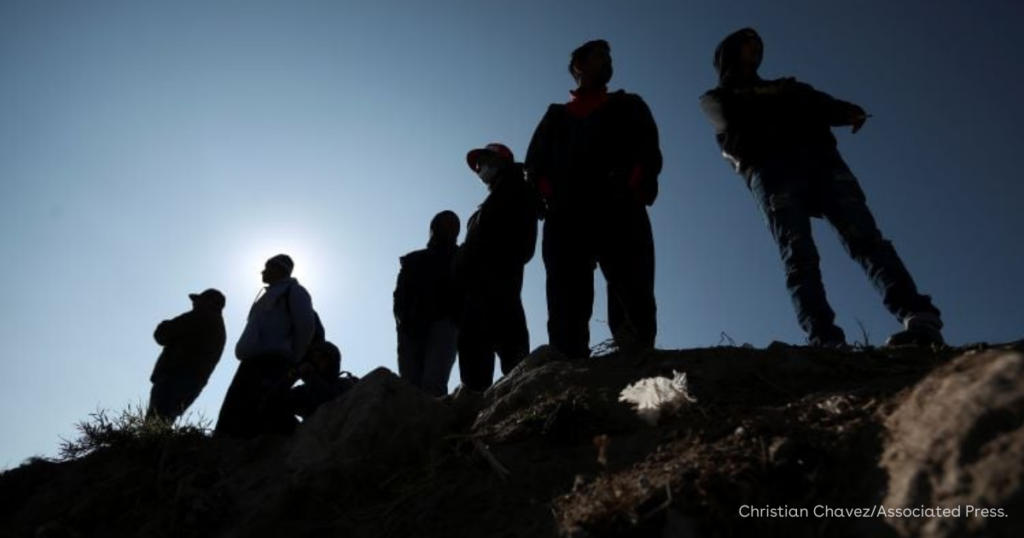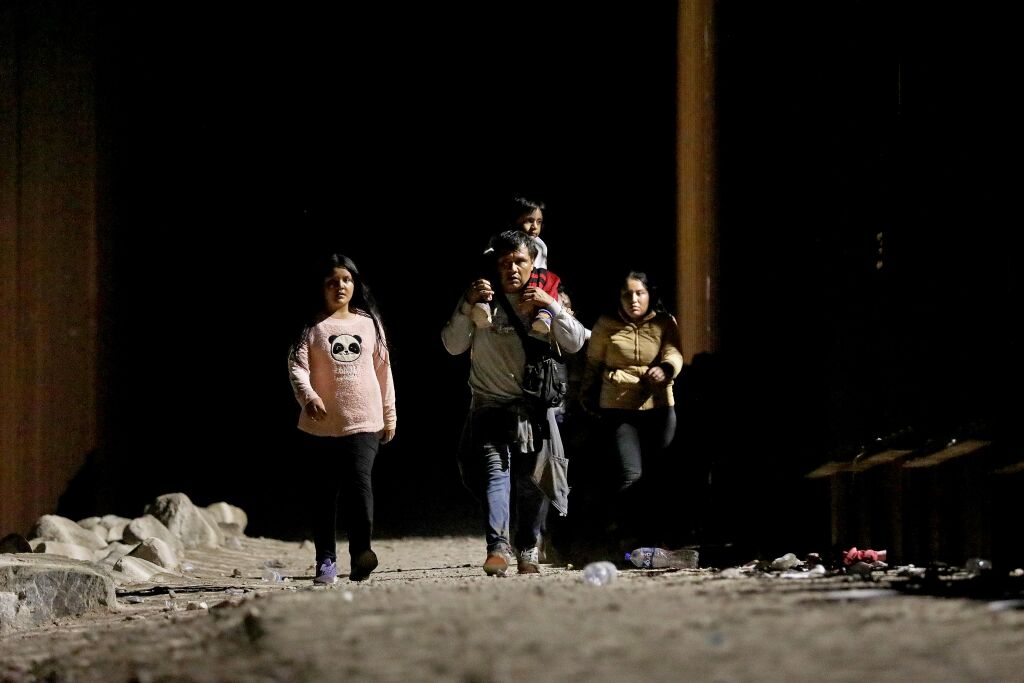
Humanitarian Relief for Migrants Needed As Title 42 Ends
By Cassandra BrandtMay 11, was the final day of the Trump and Biden administrations’ Title 42 policy which denied the basic right to seek asylum at the U.S.-Mexico border for 38 months.
The policy was derived from a vaguely written 1944 law allowing limits at border crossings for public health reasons. Since enacted in March 2020 it’s basically been interpreted as an allowance of immediate expulsions of undocumented migrants at the U.S.-Mexico border, including those seeking asylum- about 2.8 million people.
Now that the Biden administration is ending Title 42, asylum-seekers will once again be able to make asylum claims through Title 8, which allows for asylum claims based on a “well-founded fear” of future persecution in their home country.
As of May 10, an estimated 155,000 migrants and/or asylum-seekers were waiting in northern Mexico to cross the U.S. southern border, and an additional 28,000 migrants in U.S. Customs. Many are migrants from countries across Latin America, West Africa, the Caribbean and Sri Lanka, kicked back to Mexico during Title 42.
Some migrants are likely driven by misinformation about whether border rules would get easier or tougher after May 11. While the expiration of Title 42 lets migrants apply for asylum again, new rules taking will deny asylum to almost all migrants who cross illegally.
Prior to the May 11 date an influx of migrants also arrived illegally to avoid the new Biden administration policy which will impose tougher penalties for people caught illegally entering the U.S. multiple times.
Leaders of nonprofits in affected communities that provide aid to migrants have anticipated the end of Title 42 to have a big impact, and they’re struggling to gather resources needed.

Immigrants walk along the U.S.-Mexico border border fences near Somerton, Ariz. to turn themselves over to U.S Border Patrol. (Gary Coronado / Los Angeles Times)
The federal government doesn’t have a coordinated humanitarian response in anticipation of the expected influx of migrants, though they found the funds to deploy troops to the border to assist DHS and CBP officials while they conduct fieldwork.
Border cities will be facing a shortage of volunteers, food and supplies to serve the hundreds of migrants and asylum-seekers arriving every day. Local communities in New Mexico, Texas, California and Arizona, and cities like Chicago where many immigrants are relocated, see their social services strained beyond limit.
Once asylum-seekers are granted entry into the United States, they typically travel by private bus from immigrant detention centers at the U.S.-Mexico border to transitional centers where volunteers provide food, clothes, personal hygiene products and other necessities.
Migrants still going through processing can often receive donations too, delivered to an area between two layers of border fence where hundreds of migrants wait for Border Patrol agents to process them, exposed to the elements often for days. They need blankets, sleeping bags, diapers, feminine hygiene products, water and food.
Provided volunteers show up and resources are donated, migrants can rest, eat, shower, charge their phones, connect to Wi-Fi, and get assistance with immigration paperwork at some locations. These centers usually have links to donate money for food and clothes and hygiene products online, too.
Migrants and asylum-seekers are people that have been through unimaginable hardship. Many are coming from countries like Venezuela, where government repression and economic crises have sent families fleeing for freedom and opportunity. Humanitarian organizations seek to welcome them and provide the resources they need after their arduous journey. Donations are needed now and in the coming weeks more than ever.
Federal aid isn’t coming, not the Federal Emergency Management Agency or the National Guard, as they would in any other disaster, providing boots on the ground for housing, food, transportation, and health care. It’s up to community organizations and individual volunteers and donations to aid this humanitarian crisis.
You can help. Donations and volunteers are being called for in El Paso, San Diego, and numerous other cities.
GO Teams in areas such as Florida and southern California provide support to immigrant communities via food giveaways, mutual aid services, and more.
